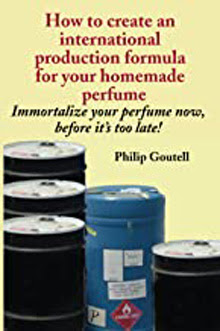I'm working on a new perfume. I have samples bottled. I'm low on one of the raw materials needed so for the moment I'm not mixing a larger batch.
I sent samples to someone whom I thought might want to get involved with the marketing. They said "no" to my new fragrance and suggested I give them something more like ... something on the market already. I said no thanks (no way!)
My fragrance has a concept. That concept runs from the name through the scent, through the people whom (I think) will be the market for it. IF a potential marketing partner isn't in sync with the concept, then we're not likely to hit it off trying to work together. It's as simple as that.
Perfume isn't just a bunch of materials mixed together to smell nice. Well, perhaps it can be that, but it can also be so much more. But you have to want to make it more. You have to be willing to put thought into what you are doing -- and then work to bring that thought into being. This requires technical skills and knowing what you are doing (or trying to do!)
Producing a fragrance that is an imitation of a leading fragrance can be pretty simple. Sellers of fragrance oils ofter "their version" of the best sellers -- usually after these best sellers are firmly established in the market and their names recognizable in the shoppers mind.
To make "your version" of the best seller -- either as a blatant knockoff or, more subtly, renamed and re marketed as "your" new perfume -- all you need is the "their version" fragrance oil, some 200 proof SD-40B alcohol, and a bit of of de-ionized water. Mix well, age for a few weeks, bottle it and you're done.
This is what you do it sales and money are your primary goals. It's hard to develop, on your own, a fragrance that has greater appeal than the mass marketer's best sellers. Although artisinal perfumers may look down their noses at them ("cheap raw materials", "too much sameness") these fragrances, that you see everywhere, ARE made by very talented perfumers, most of whom, if they were turned loose to follow their own creative muses, would amaze us and humble us with their vision and technical skills.
Perfume as ART requires THOUGHT. It's not about random mixing. Getting lucky can sometimes help. But the real deal is formulating an IDEA of the fragrance -- the smell, the story it tells, the music is might inspire, the visual images it might provoke -- and then formulating the fragrance that brings that vision to life.
It's not easy. But it's what makes a perfume special, and worth a bit of struggle to place it in the hands of the right marketing partner who will place it in the hands of the right buyers -- buyers who can appreciate what you've done.
Saturday, September 1, 2012
Subscribe to:
Posts (Atom)

